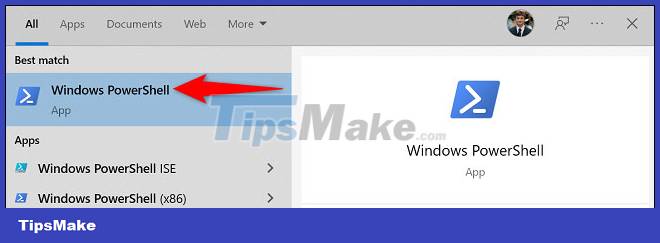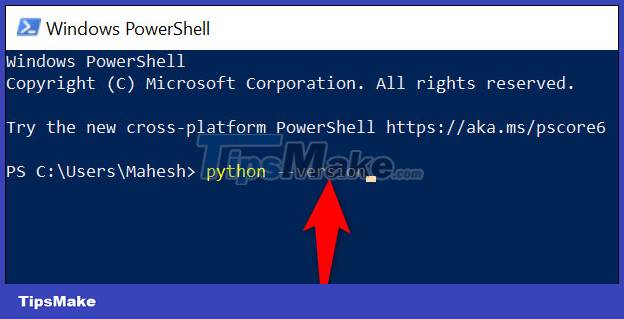How to Check Python Version on Windows, Mac and Linux
Find out below.
How to read Python versions
Python version information will basically consist of three values: the major version, the minor version, and the micro version. For example in the example below:
Python 3.10.4
In the above example, the number '3' refers to the major version, the number 10 indicates the minor version, and the last digit, '4', indicates the micro version of Python.
Major versions of Python are often not compatible with each other, but minor versions are.
Check Python version on Windows
On a Windows PC, you can use the operating system's built-in PowerShell utility to check the installed Python version number.
To get started, open the 'Start' menu and search for the keyword 'Windows PowerShell' (without the quotes). Then click on the corresponding result returned.

When PowerShell opens, type the following command and press Enter:
python --version

PowerShell will immediately display the version of Python installed on your PC.

View Python version on Mac
On a Mac, you'll use the Terminal app that comes pre-installed on your system to see the version of Python available.
Launch Terminal by opening Spotlight (using the keyboard shortcut Command + Space), then search for the keyword 'Terminal' and click on the corresponding result.
On the Terminal window that opens, type the following command and press Enter:
python --version
Your current Python version will be displayed.
Check Python version on Linux
To check the version of Python installed on Linux, open a Terminal window (you can use the keyboard shortcut Ctrl + Alt + T), type the following command and press Enter:
python --version
Terminal will output your current Python version.
What if your computer has multiple versions of Python installed?
You can install multiple versions of Python at the same time on your computer. This is because some applications use a newer version of Python 3, while others still run on Python 2.7. In this case, to find the version of each Python version, you would use the following commands:
To check the version of Python 2.7, use the following command:
python --version
For Python 3, use the following command:
python3 --version
All is as simple as that, wish you success!
 How to Start Programming in Python
How to Start Programming in Python How to Uninstall Python
How to Uninstall Python The Python Interpreter is now available on the Microsoft Store
The Python Interpreter is now available on the Microsoft Store How to install Python plugin to be able to execute Python programming on IntelliJ
How to install Python plugin to be able to execute Python programming on IntelliJ The latest changes in Python 3.9
The latest changes in Python 3.9 How to add Python to the Windows PATH variable
How to add Python to the Windows PATH variable